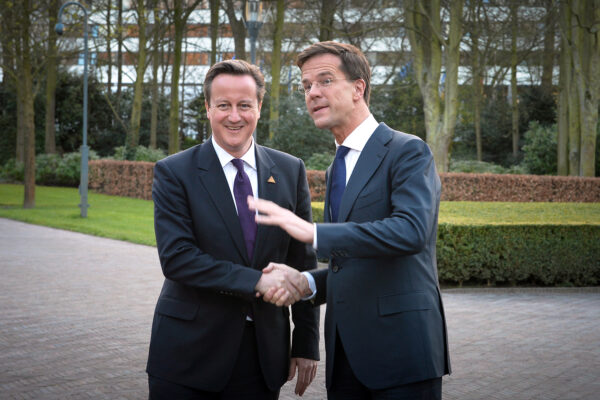
Western Europe’s mainstream conservative leaders seem to have interpreted last weekend’s parliamentary election results as a mandate for reform, arguing that the surge in support for Euroskeptic parties demonstrated a popular desire for “less Europe”.
Nationalists won over forty more seats in the European Parliament last week. Their votes came mainly at the expense of the European People’s Party, a group of Christian Democrats and conservatives, and the liberal alliance.
British prime minister David Cameron, whose Conservatives were beaten into third place behind the United Kingdom Independence Party and the Labour opposition, saw the outcome as strengthening his case for a more flexible European Union that does not automatically insist on deeper economic and political integration between all its member states.
“The European Union cannot just shrug off these results and carry on as before,” he said on Tuesday. “We need change. We need an approach that recognizes that Europe should concentrate on what matters, on growth and jobs, and not try to do so much.”
Cameron’s Dutch counterpart, Mark Rutte, agreed, saying, “The first thing we have to do is to formulate an answer,” one that “contains fewer rules and less fuss from Europe and focusing Europe on where it can add value to things.”
The Netherlands’ ruling Labor and liberal parties lost out to the federalist liberal Democrats and nationalist Freedom Party in last week’s European assembly vote.
Last year, Rutte’s government called for a halt to “creeping” European Union interference in national politics, saying “the time of an ever-closer union in every possible policy area is behind us.” The Dutch specifically argued against harmonizing social security systems and tax rates as well as laws governing food safety and working conditions across Europe.
Germany’s hawkish finance minister, Wolfgang Schäuble, similarly cautioned against “the mindless pursuit of more Europe” in an article for Die Welt newspaper. He suggested that the European Union should concentrate on those areas that “can only be negotiated with long-term success on the European level,” such as the single market, European energy and trade as well as foreign policy. Such an “intelligently integrated Europe,” he admitted, “could, in the end, mean less Europe.”
Cameron has promised his electorate a referendum on Britain’s European Union membership after the next general election by which time he hopes to have secured ample changes in the island nation’s relations with Europe to secure a “yes” vote.
France’s president François Hollande, for one, resists this effort to withdraw the relations between Europe’s common institutions and the member states. “We don’t need changes to the contract,” he said this week. Underlining the daunting task Cameron faces, Hollande added, “France is Europe. And Europe cannot live and cannot move forward without France.”
But Germany, the continent’s largest economy and leading nation, has not ruled out treaty changes to facilitate continued British membership, even if it hesitates to reverse the process of European integration that has defined its relations with its neighbors since the end of World War II. Throughout the European sovereign debt crisis, Germany pursued, if sometimes reluctantly, pan-European solutions, including a banking union that Britain, the Czech Republic and Sweden opted out of in 2012.
Sweden’s finance minister, Anders Erik Borg, warned at the time that the “move toward euro banks, euro taxes, euro transfers […] might be very popular among the eurocrats but I think there are very few Europeans actually wanting these developments.” Last week’s election proved him right.
